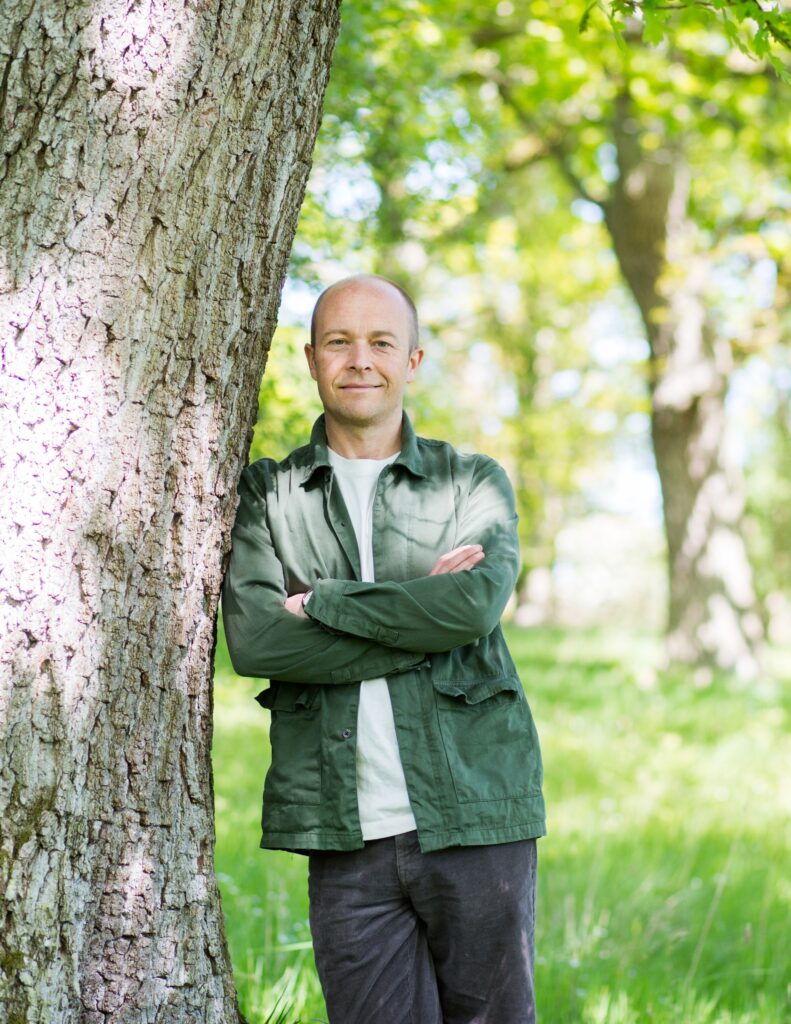A furniture maker from Gosforth who was the first recruit on to a clinical trial looking at the benefits of using aspirin to prevent bowel cancer, has welcomed results that show taking a low ‘baby’ dose of the drug can help people at high risk of the disease.
Nick James, 46, was the first person to sign up to the Colorectal Adenoma/Carcinoma Prevention Programme 3 (CaPP3) trial in 2014, which set out to explore if taking a low daily dose of aspirin (also known as baby aspirin) could reduce bowel cancer risk in people with Lynch syndrome.
Lynch syndrome is a rare genetic condition. NHS England estimates that 1 in 400 people in England has Lynch syndrome (equivalent to around 175,000 people)*.
It has been shown that having Lynch syndrome substantially increases the risk of bowel cancer and increases the risk of other types of cancer, including womb, ovarian and prostate cancer.
Nick decided to undergo genetic testing after his mum died from cancer, and other family members were diagnosed with bowel cancer.
He was referred by his GP to the Northern Genetics Service at Newcastle Hospitals and his results came back showing that he was a carrier for a faulty gene which causes Lynch syndrome.
Led by Professor Sir John Burn, a world-leading geneticist at Newcastle University and funded by Cancer Research UK and Stand Up To Cancer, the CaPP3 trial shows that a daily dose of 75-100mg works just as well as previously tested higher doses, in cutting bowel cancer risk in people with Lynch syndrome.
Higher doses of aspirin have already been shown to prevent bowel cancer in this group of people. In the CaPP2 trial, also led by Professor Burn, a 600mg daily dose of aspirin for people with Lynch syndrome cut the risk of bowel cancer in half.
The results announcement of CaPP3 comes ahead of the Cancer Research UK International Cancer Prevention Conference, which starts in London tomorrow (Wednesday 25 June) and will see Professor Burn present findings from the (CaPP3) trial.
Professor of clinical genetics at Newcastle University and lead investigator of the CaPP3 trial, Professor Sir John Burn, said:

“For 30 years, scientists have observed fewer cancers in people who take aspirin. The CaPP3 trial now tells us that aspirin can prevent bowel cancer at lower doses, minimising the chances of side-effects whilst offering vital protection for people with Lynch syndrome.
“However, only a quarter of people with Lynch syndrome are currently taking aspirin. Too many people are missing out on a potentially life-changing opportunity to prevent cancer.
“We’re now engaging with the regulators to change prescribing guidelines so that aspirin can be used more widely for people with a high risk of bowel cancer. We have a chance to give more people with Lynch syndrome protection which would reduce their fear of bowel cancer in the future.”
Nick’s roots in the trial run deep. He owns a patch of woodland in Northumberland where he enjoys time in nature on what he likes to call ‘woodland Wednesday’s’ and he grows his own willow trees, from which he crafts beautiful pieces of furniture.
Willow bark has been used for thousands of years to help relieve pain as it is a rich source of salicin, which is used to make acetylsalicylic acid, the active ingredient of aspirin.
Nick, who runs his workshop at Mushroom Works in Newcastle, said:
“It’s full circle that I work with trees and my treatment derives from the willow tree, where the natural form of aspirin comes from.

“Finding out I had a faulty gene that causes Lynch syndrome was extremely daunting, but taking part in this trial has given me hope that there is something that can reduce the chances of me and others developing cancer.
“It was fascinating to hear about how something as small as aspirin could potentially make such a big difference to my future. I was first through the door with the trial – no hesitation.
“Before joining CaPP3 I had never really thought about clinical trials before. But now, I am aware of how important they are to me, my family and future generations. Taking three aspirin tablets a day wasn’t hard, but it has helped this study and it could potentially help lots of people in the future.”
Nick now has a colonoscopy every two years and continues to take aspirin, but has no other appointments or treatment connected to Lynch syndrome. He hasn’t had cancer.
The CaPP3 trial involved 1,879 people with Lynch syndrome in the UK, three other European countries and Australia who were treated with aspirin over five years. Participants on the trial were given three different doses of aspirin – 75-100mg, 300mg or 600mg a day – and received regular checks to see how they were doing throughout.
The trial found that those on the lowest aspirin dose did just as well as those on the higher doses, with fewer bowel cancers across all three doses. Aspirin given at lower doses is likely to cause fewer side-effects, including bleeding and stomach ulcers, than at higher doses.
Head of prevention and early detection research at Cancer Research UK, Dr David Crosby, said:
“The holy grail of cancer research is prevention. We’re in a new era where trials like CaPP3 are transforming how we approach cancer prevention.
“It is exciting that aspirin can offer protection from bowel cancer at low doses. People with Lynch syndrome get regular colonoscopies and live with the anxiety that they are highly likely to develop bowel cancer in their lifetime. Taking aspirin daily could cut this risk by at least half and alleviate their fears.
“We now have really good evidence that aspirin can prevent bowel cancer in those at a high risk of the disease. We hope that the regulators will support the case for formal licensing of aspirin as a cancer prevention drug for people with Lynch syndrome.”
​
